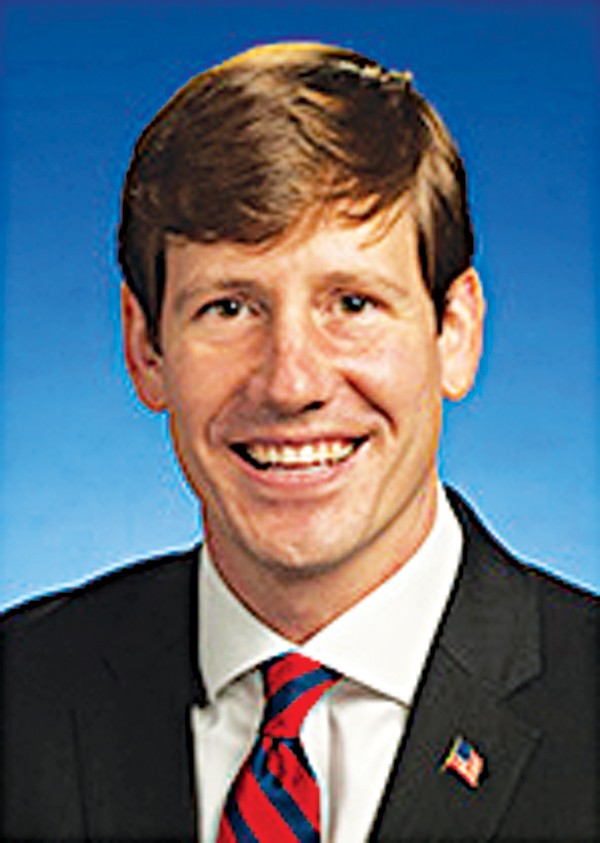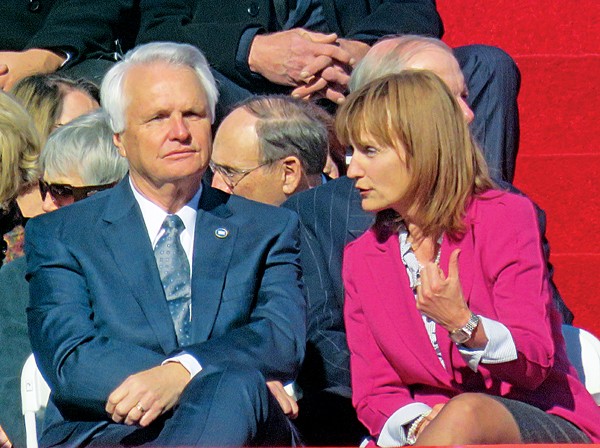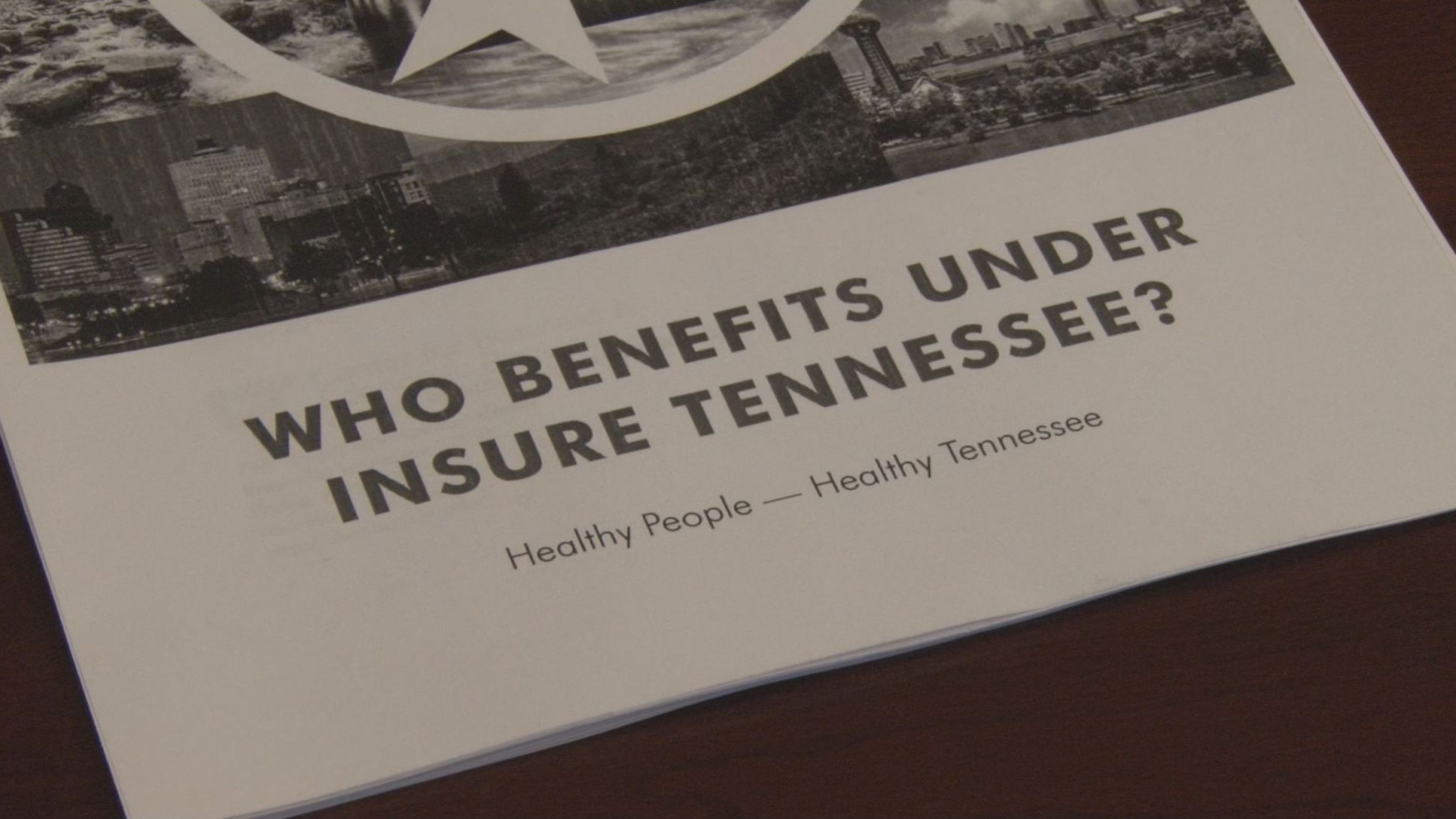Forget the elephant in the room. Where Tennessee state government is concerned, the elephant is the room. Republican sentiment in virtually every county in Tennessee, and in each of the state’s three grand divisions, is so overwhelming that all meaningful debates now take place within the GOP super-majority itself.
As was the case during the multiple historic decades of Democratic domination, one-party government invites fragmentation, a process during which what appears monolithic and unified right now could well split into a right, a left, and a moderate center (all things being relative) as the political spectrum inevitably reasserts itself.
Something of the sort may get underway, in fact, as soon as next Tuesday, February 3rd, with the convening of the special session called by Governor Bill Haslam to deal with Insure Tennessee, the Republican governor’s home-grown version of a Medicaid expansion plan.
 Justin Fox Burks
Justin Fox Burks
Mark Norris
Given the tensions and current disagreement on the subject within the GOP caucus, the session could easily last longer than the week allocated for it in the resolution authored (dutifully but reluctantly) by state Senate Majority Leader Mark Norris of Collierville. But not if Norris, an all-but-formally declared opponent of the plan, and the rabidly anti-Obamacare members of the Republican caucus have their way.
Although much of the declared and potential opposition to Insure Tennessee is clearly political, much of it, too, is either based on (or rationalized from) financial claims — one of them, certain to be heard early and often in the special session, being an allegation that the federal government could renege on its promise to provide 90 percent of funding for a state’s Medicaid program after fully funding the first two years.

Brian Kelsey
This is a favorite argument of state Senator Brian Kelsey (R-Germantown), a sworn foe of Insure Tennessee and of Medicaid expansion by any other name. “I question whether the federal government is a reliable negotiator,” said Kelsey last week, repeating an assertion he and other opponents make frequently — though not (so far, anyhow) with appropriate chapter-and-verse citations of prior derelictions by the feds.
Kelsey goes further, also questioning the validity of a commitment to foot the bill for the remaining 10 percent by the Tennessee Hospital Association, whose financially distressed and overburdened member institutions are desperate for the $1 to $2 billion that could be funneled annually via Insure Tennessee to TennCare (the state’s version of Medicaid).
The senator does not question the hospitals’ bona fides (though he has called the Hospital Association a “special interest”). Rather, he refers to a proposal periodically made in the past by U.S. Senator Bob Corker that would abolish the kind of fees on health-care providers that, as amplified in accordance with the Hospital Association’s pledge, could provide the association’s annual funding share.
A problem with that: Corker’s office responded to the claim with a statement that the senator had “no current plans” to proceed with any such legislation. Corker added, “I assume governors will continue to take advantage of federal laws as they exist today.”
In an indirect and gingerly fashion Corker made it necessary for critics of Insure Tennessee to challenge his own good faith on the matter.
Nevertheless, and despite the governor’s attempts to dissociate Insure Tennessee from Obamacare in information sessions (read: lobbying visits) held in Jackson and Memphis last week, it is a root fact that, in Tennessee as in Republican states elsewhere, the use of the president’s name in describing the Affordable Care Act (ACA) can by itself be a deal-killer.
It is that fact that prompted Haslam, earlier this month, to make a special appeal to the legislature’s Democrats for support of Insure Tennessee. With rare exceptions, if any, he should get his wish. But Democrats are a marginal factor in the General Assembly of 2105, owning only five seats in the 33-member state Senate and 26 of the 99 seats in the House.
The showdown over Insure Tennessee will be decided within the ranks of the legislature’s Republicans. In an interview with the Flyer two weeks ago, Norris contended that the GOP caucus was possessed of an “open mind” on the governor’s Medicaid proposal —and that he had not ruled out either opposing it or, as is the case with most administration bills, sponsoring it.
Yet it seemed obvious, in the thicket of reservations he expressed about the bill (most technical or procedural or fiscal, some philosophical) that Norris is disinclined to support Insure Tennessee. And, whether it was prepared with his cooperation or not, an online ad bearing Norris’ likeness and stating vigorous opposition to Insure Tennessee has been appearing with some regularity of late on various websites.
In his Flyer interview, Norris summed up several possible objections to Insure Tennessee: its effect upon ongoing litigation concerning TennCare in federal court; the specter of swelling TennCare’s rolls to the point of fiscal untenability; and uncertainty regarding what the U.S. Supreme Court will do in King v. Burwell, a case challenging the legality of federally administered health-care exchanges under the ACA.
(Significantly, Norris is one of 18 members of the state Senate — a majority — who has signed on to an amicus brief on the plaintiff’s side in the latter case.)
All of this, Norris said, speaking of himself in his institutional role, constituted “the situation the majority leader has to deal with so as to instruct and inform my caucus,” adding meaningfully, “That’s the pool from which the governor has to draw for his votes. … My job is to maintain credibility with my caucus and to provide them with factual and legal information to make their best judgment.”
The obligation to “maintain credibility” with his caucus had, up until that point, anyhow, kept Norris, in the case of Insure Tennessee, from assuming his normal role as sponsor of legislation desired by the governor.
Indeed, with less than a week to go before the onset of the special session, there is widespread doubt as to the form that action on Insure Tennessee should take.
“Is it legislation or a joint House-Senate resolution?” Norris wondered. “It could be a concurrent resolution, with two tracks [in the House and Senate separately and simultaneously].” In that case, Norris said, pointedly, “Any member can file amendments, including ‘poison pill’ amendments.”
As Norris’ indicated, there has been a great deal of Alphonse-and-Gaston shuffling within the leadership ranks of the two chambers regarding who should bear the onus of formally presenting Insure Tennessee for consideration.
 Jackson Baker
Jackson Baker
Speakers Ron Ramsey and Beth Harwell will play important roles in the Senate and House, respectively, during the special session.
Lieutenant Governor Ron Ramsey, the speaker of the state Senate, has indicated he is open to the idea of supporting Governor Haslam’s proposal, but he, like Norris, has professed uncertainty on the matter of procedure, suggesting that the House and Senate should act separately on the matter, with the House going first.
That hasn’t sat well with Norris’ opposite number in the House, Majority Leader Gerald McCormick (R-Chattanooga), who has braved the possible discontent of his fellow Republicans by endorsing Insure Tennessee and promising to do what he can to get it passed.
Calling the idea of a go-it-alone process in the House “preposterous,” McCormick said, “If they [Senate leaders] don’t want to do it, then they just need to tell us and we’ll go about our business and go into regular session. But we’re not going to go through an exercise in futility if they’re not serious about considering this legislation.”
McCormick has been frank in declaring that House votes for Insure Tennessee may be hard to come by.
As quoted in the Tennessean two weeks ago, McCormick put the issue succinctly, “It’s a government program and we’re expanding it. And as Republicans, we don’t like to expand government programs, period. But then you go back to the common-sense part of this … really the only practical way to provide these services … is to expand the Medicaid program.”
The debate in GOP ranks calls to mind the situation that another Republican governor in recent times found himself. The proactive way in which a term-limited Haslam has begun his second and final four-term term is reminiscent of the situation that former Governor Don Sundquist found himself in, circa 1997.
As is the case with Haslam, Sundquist confronted a gap between perceived policy needs and the revenues necessary for the state to act upon them. The ever-burgeoning rolls of TennCare, a program Sundquist resolved to support, were a part of the problem, but there was, at least in the then-governor’s mind, a structural weakness in the state’s revenue base that retarded other policy initiatives, as well.
The problem, as Sundquist saw it, lay in the inherent limitations of the state’s reliance on sales tax revenues, which, by definition, were subject to economic cycles. There was another problem, too: the inherently regressive nature of a sales tax.
As Sundquist put it in 2011 in an interview with this writer for an article in Memphis Magazine: “Nobody disagrees that we ought to be a low-tax state, but we have to have a fair-tax system that is not regressive, and when you’ve got the people who make the least amount of money paying sales tax on food and clothing, it’s not fair. Then you’ve got all these professionals who are paying virtually nothing. Oh, they’ll tell you, ‘We pay a tax, a fee for our licenses.’ Just bull!”
Sundquist’s first solution back then was a proposal for a business tax, but, as opposition to that proposal grew, most of it from his own Republican ranks, he bit the bullet and proposed what he called a “flat tax” on income — one that would be offset by corresponding decreases in one’s federal income tax and could not be raised except by two-thirds majorities of both the state House and the state Senate.
Sundquist had Republican loyalists willing to back his proposal but not nearly enough to stem the tide of discontent, not only in GOP legislative ranks, but at the grass-roots level. The “I.T.,” as opponents of a state income tax derisively called it, was finally dropped from legislative consideration, on the very brink of passage, in the wake of a July 2001 riot on the state capitol grounds by what numerous observers called a “mob.”
(It is perhaps no accident that Norris, in his recent Flyer interview, used the expression “it,” which he spelled out with the initials “I-T,” to describe Haslam’s Insure Tennessee proposal.)
The long and the short of it was that the concept of a state income tax became untouchable by members of either party, and the sales tax was forever enshrined as the basic source of state revenue. The aforesaid Senator Kelsey attended to the “I.T.’s” formal burial recently by spearheading the constitutional amendment prohibiting it that was passed by a statewide vote in November.
And, as a consequence of his tax proposal, Sundquist became anathema in state GOP circles, though he had been backed by such traditional Republicans as Memphis’ Lewis Donelson and by a variety of business-minded groups.
 Jackson Baker
Jackson Baker
for a unanimous endorsement of Insure Tennessee.
Significantly, Haslam, too, has support from such sources. The state Chamber of Commerce has backed his Insure Tennessee proposals, and Phil Trenary of the Greater Memphis Chamber is an especially strong advocate. Equally telling was a 12-0 vote of endorsement of the governor’s plan by the Shelby County Commission two weeks ago. The sponsor of that vote was Terry Roland of Millington, one of the most vocal and consistently conservative of the commission’s six Republican members.
For Roland and the other supporters of Insure Tennessee on the commission and elsewhere locally, the matter is a no-brainer: Memphis’ Regional One Health facility, which is responsible for the lion’s share of indigent medical care in Shelby County and in adjoining West Tennessee, Arkansas, and Mississippi, is in sore need of the funds Insure Tennessee would provide.
Spokespersons for other major health-care facilities as well, including the Baptist and Methodist hospital systems, have lobbied persistently for Haslam’s plan.
Even so, passage of the measure will be touch-and-go. Speaking before a local Republican women’s group earlier this month, several local Republican legislators appeared to vie with each other in citing reasons not to pursue Insure Tennessee. State Representative Curry Todd forecast that the coming special session would become a “bloodbath,” and relatively moderate House member Steve McManus expressed a fear that Medicaid expansion under Insure Tennessee would become a costly “Hotel California” that the state could enter into but never leave.
Ironically, the governor’s plan has what Haslam has advertised as a fail-safe against such a prospect. As proposed, Insure Tennessee, which would provide health-care coverage for at least 200,000 currently uncovered Tennesseans, would involve no increase in state funding whatsoever. The funding for the first two years — again, estimated to be between $1 and $2 billion — would be borne by the federal government.
Should there be a default, intentional or otherwise, by either the federal government or the Tennessee Hospital Association, which are pledged to assume 90 percent and 10 percent of the subsequent funding burden, respectively, Insure Tennessee would sunset automatically, the governor insists.
That fact, a funding formula free of new state obligations, allows for one of the two most important distinctions between his current predicament and that which faced Sundquist, whose tax-reform plan called for raising additional state revenue, even if offset by federal income-tax reductions for individual taxpayers.
The other distinction between Haslam’s situation and Sundquist’s is that the latter was dealing with substantial Democratic majorities in both legislative chambers, a fact tilting both bodies toward at least the concept of governmental intervention as a remedy for social problems. Haslam confronts a Republican super-majority in both chambers, including Tea Party members and other arch-conservatives opposed to the very idea of governmental expansion, regardless of the paying formula.
The fact of that anti-government bias will be the chief obstacle for Haslam to overcome in the special session, which Norris and other Republicans want to hold to a single week.
But it will also be a factor in the regular session to come, when there will be mounting opposition to the administration’s support for Common Core educational standards (decried as creeping federalism by Tea Party members and opposed also by state teacher’s organizations for other reasons) and its defense of the endangered Hall Income Tax on annuities (which Haslam regards as important to maintain, given the state’s existing revenue needs).
There will be legislative pressure, too, to move further on imposing new restrictions on abortion than Haslam might prefer, though the governor gave at least formal assent to the passage of Constitutional Amendment 1 on last November’s ballot, which gives license to renewed anti-abortion measures.
Does this last feature seem to contradict the stated bias of so many members of the GOP super-majority against stepped-up governmental activity? Maybe so, but it won’t affect the realities of what happens in Nashville in 2015, any more than logical inconsistencies on approaches to Insure Tennessee will.




 Greg Cravens
Greg Cravens 


 Justin Fox Burks
Justin Fox Burks 
 Jackson Baker
Jackson Baker  Jackson Baker
Jackson Baker 